This article was co-authored by Fernando Campos. Fernando Campos is a Licensed Marriage and Family Therapist and the Founder of Avant-Garde Therapy in Davie, Florida. Fernando has over 11 years of experience and offers telehealth, individual therapy, couples counseling, teen therapy, and family therapy programs. He has worked as a community educator on the topics of intimate partner abuse and trauma, anger management, family engagement, and counseling within alternative education. He is trained in CBT (cognitive behavioral therapy), Solution Focused Therapy, and BSFT (brief strategic family therapy). Fernando holds a Master’s Degree in Marriage and Family Therapy from Nova Southeastern University.
This article has been viewed 4,517 times.
Beating depression in a relationship is never an easy feat. Not only is it mentally draining having constant strain on you and your partner, but it can be very frustrating when there seems to be no answer or resolution.
Steps
Seeking Medical Help
-
1Make a doctor appointment to seek treatment. Depression rarely goes away on its own. You need to take action to make your life better. Talk with your doctor about what might be right for you. Treatment takes time, so it's best to start right away.
- Medication can help correct chemical imbalances in the brain. It can help break down the barriers that are stopping you from feeling energetic or happy.
- Therapy can help you identify and fight back against the factors in your life that may be dragging you down. Sometimes, life circumstances and problems cause or contribute to depression. A good therapist can help you figure out how to deal with that.
-
2Don't quit on treatment. The first medication you try might not be the right one, but maybe the third one is. Or if you don't click with one therapist, maybe another one would be a better fit. It may take months for things to feel better. It takes courage to keep going when you aren't seeing much progress yet. If you're feeling discouraged, talk with your medical team.
- Talk with your doctor about whether and how well various medications work.
- Schedule an intake session with several different therapists in your area. Choose the one who works best with you.
Advertisement -
3Seek immediate help if you are feeling suicidal. Suicidal thoughts are very serious and you deserve to receive help. Tell someone close to you. They can help you call a hotline or go to the emergency room. Remember, they would rather drive you to the emergency room than drive to your funeral.
Managing Your Depression
-
1Work on talking about what you're going through. While it can be hard to talk about, there's nothing shameful about illness, and that includes mental illness. Start opening up more to others. Don't isolate yourself.
- After talking to a mental health professional, you can discuss your situation with a coach or a spiritual leader, such as a pastor, an imam, a rabbi, etc.
-
2Start small and set goals. Get yourself into a routine and try to accomplish a few things. Depression can make it hard to get out of bed. But lying there all day can feed into your negative thoughts and feelings.
- It's okay if you need to set little goals. Even "I brushed my teeth today" or "I made a sandwich instead of just eating its components" are great things to celebrate.
- Sometimes it's almost unavoidable, but no one can help you if you don't want to at least try.
-
3Exercise. It can be hard to start moving when depression is dragging you down, so don't be afraid to start small. Instead of putting on workout clothes and going to the gym, maybe you'll just do some wall push-ups or walk around the block. Exercise is about as close to a magic bullet as it comes for your health.
- Try mild exercise like going for walks with your partner, or playing backyard sports.
- Consider basketball, swimming, and hiking.
-
4Balance your diet. Try to eat more fruits and vegetables. If you're tired, aim for low-prep things like an apple or celery dipped in peanut butter. Healthy eating can help you feel better about yourself and give you the energy you need.
- Try to make healthy food easy to access. For example, you can keep a can of nuts easy to reach or keep fruit in bowls in the fridge.
- If you're trying to choose between a healthier food and an unhealthy food, and you don't feel strongly, then pick the healthier one. You'll feel better about it later.
- This doesn't mean you can never enjoy treats. Just aim for reasonable portions. If slowly eating your favorite chocolate bar helps you fight depression, then enjoy that chocolate!
-
5Get enough sleep. Sometimes it's hard to sleep, especially when depression is filling your head with gloomy thoughts. Work on following a better routine.
- Make sure you have enough quiet time to think during the day so that your mind doesn't need to race as much at night.
- Use blue light filters on any screens you look at in the evening.
- Try playing relaxing music to help you fall asleep.
- Remember that even lying in bed awake is more restful than not trying. Even if you're staring at the ceiling at 2 am, you're still getting a benefit from the rest.
-
6Write a positive note every day; something that you like about yourself. Stick it on your bathroom mirror or somewhere you have to look at it. We all like at least one thing about ourselves no matter how depressed we are. You just need to remember it.
-
7Work on your thoughts. It may seem unbelievable, but on the same note as positive thinking, challenging your own negative thoughts can actually be very valuable. Instead of thinking, "I'm ugly and useless and nobody likes me," challenge yourself. If you're in a relationship then you can't be that terrible or you'd probably be single in the first place. Communicate.
- If you can't think positively about yourself, try thinking neutrally. For example, instead of "I don't deserve to live," try "I'm a person, and all people deserve basic health and safety."
- If you're feeling hurt, frustrated or angry, don't take it out on your partner!
- Practice talking about how you feel. "I'm really sad today." "When you ______, I feel _____."
-
8Recognize that these feelings are not forever. If so, remember this saying: "Feelings are never permanent, whether you're happy, sad, angry... it will always pass". Every time you feel down, you need to remind yourself of this, because no matter how bad it may seem, it will end eventually. There is help out there for us all, and you're allowed to rely on someone you trust for help and support.
Maintaining Your Relationship
-
1Understand that depression in a relationship is not much different from depression when you're single. It can either be tougher or you can have extra support, depending on how your relationship works and how you handle it.
-
2Understand that most relationships tend to break down when you become isolated or disconnected. It may be tempting to close yourself off because you're tired or afraid of hurting them. Work on finding ways to spend time together. This shows your partner that yes, you do care.
-
3Find alternative ways to show your love. Maybe you're too tired to handle amusement parks anymore, but you could snuggle in front of the TV together or take a walk on the beach. Depression will make your life harder, so you'll need to think of new ways to spend time with your partner.
-
4Tell your partner what you're going through. If you two know each other well, then it's important that your partner understands what's going on with you. Set aside a time to talk and explain your diagnosis. Expect to cry a little, answer some questions, and assure them that it isn't their fault.
- Your partner may want to read a little about depression in order to understand it better.
- If your depressive situation stems from being in a long distance relationship, this is definitely something you must try to discuss with your partner. Step one in this case is to recognize that the goal of any long-distance relationship is to inevitably eventually become close.
- If you're feeling depressed due to feeling distant from your partner, try exploring yourself more in-depth, because that allows for more areas for you and your partner to actually connect when you talk or see each other.
-
5Don't draw conclusions about your partner. When you're depressed, there's no doubt you're a different person. We tend to let the negative thoughts misconceive what's going on around us and therefore make inaccurate judgments.
- If your partner does something that upsets you, think "Did they really mean it in a negative way, or did I take it in the worst possible context?" It could be that you misunderstood. If you're unsure, ask them.
- If you're too upset to speak, try taking a walk or a five-minute break.
-
6Don't beat yourself up over your relationship. It's okay to be vulnerable, and it's normal to have bad days or minor arguments. This does not mean you're a terrible partner. Depression is difficult to fight, and you are strong for continuing.
-
7Reach out to your partner. Difficult times may weaken a relationship, or make it even stronger. Allow yourself to be vulnerable. Your partner is with you because they care about you, and they want to help you however they can. Give them a chance to do so.
Expert Interview
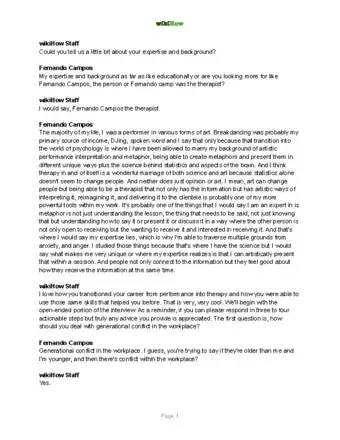
Thanks for reading our article! If you'd like to learn more about dealing with depression in a relationship, check out our in-depth interview with Fernando Campos.
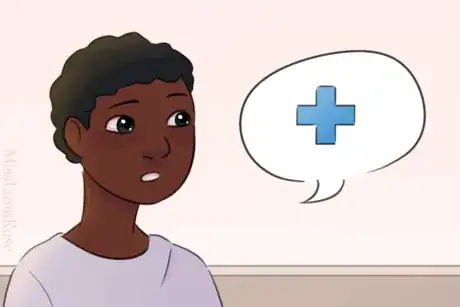
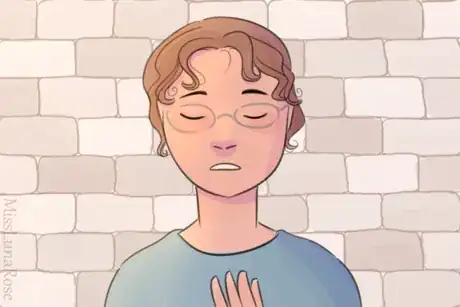
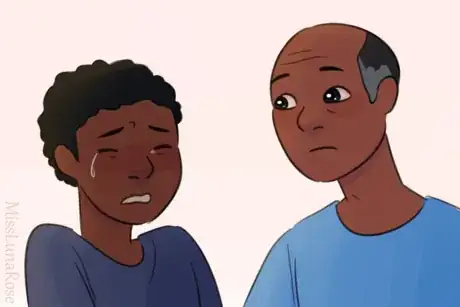
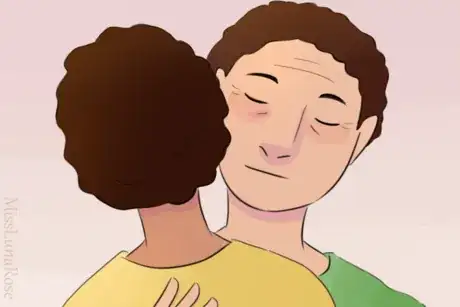
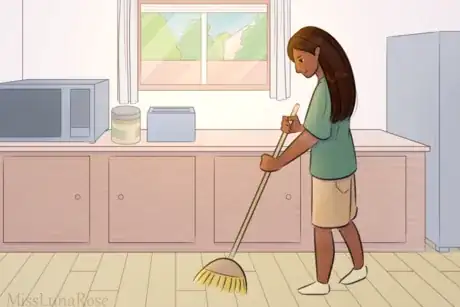
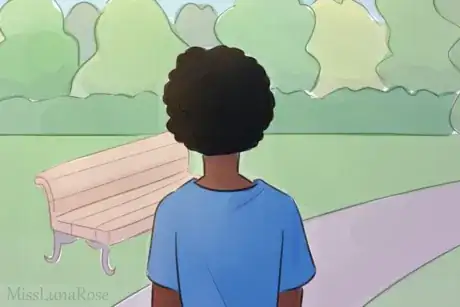



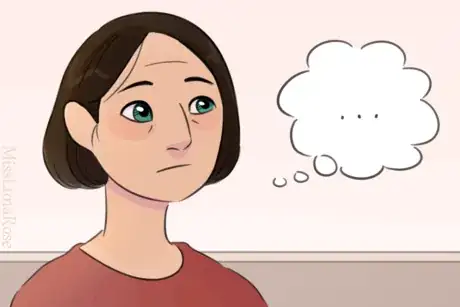
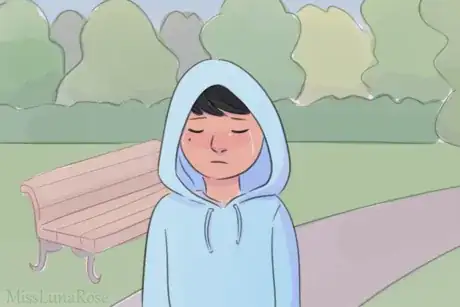







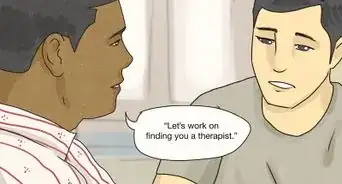

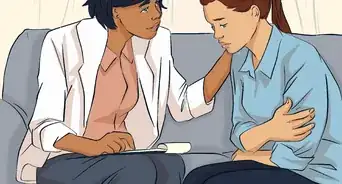

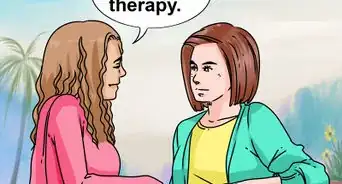
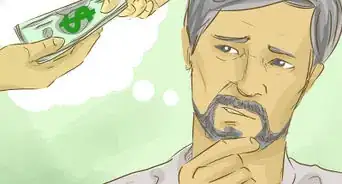



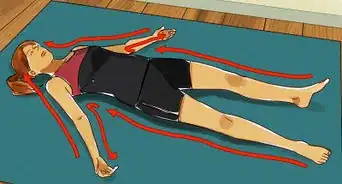

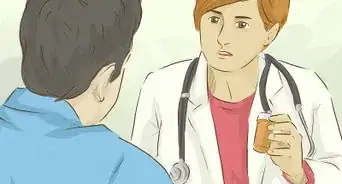

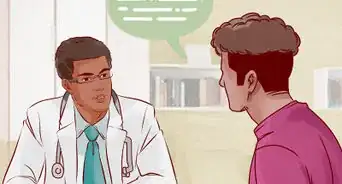














































Medical Disclaimer
The content of this article is not intended to be a substitute for professional medical advice, examination, diagnosis, or treatment. You should always contact your doctor or other qualified healthcare professional before starting, changing, or stopping any kind of health treatment.
Read More...